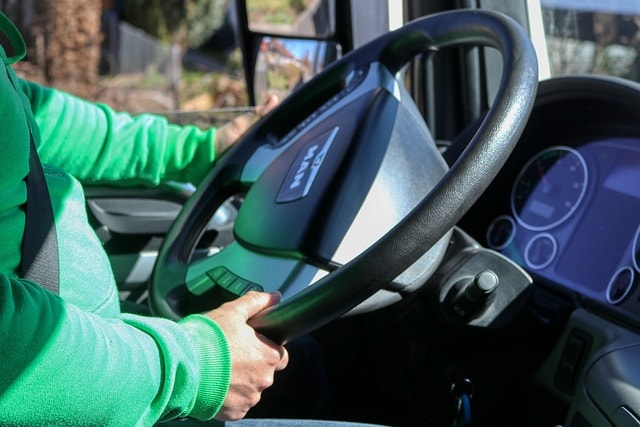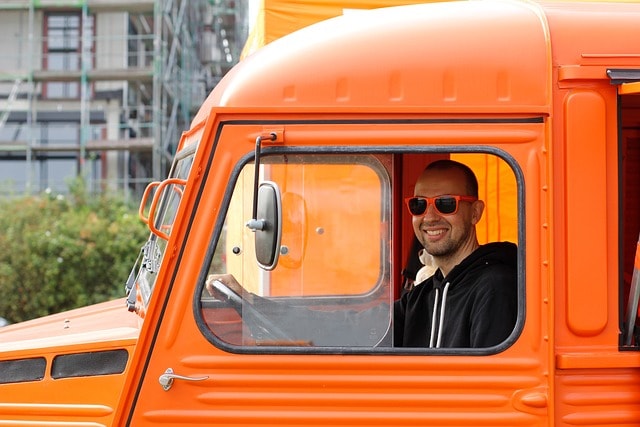SB 1100 California: New Driver’s License Requirements for Job Listings

Introduction
Starting January 1, 2025, California employers must comply with Senate Bill 1100 (SB 1100), which changes how driver’s license requirements can be included in job postings. This new law modifies existing law under the California Fair Employment and Housing Act (FEHA) to promote more inclusive hiring practices and reduce barriers to employment.
Overview of California SB 1100
California Senate Bill (SB) 1100 is a landmark legislation addressing driver’s license discrimination in employment practices. Signed into law by Governor Gavin Newsom on September 28, 2024, SB 1100 amends the California Fair Employment and Housing Act (FEHA) to make it an unlawful employment practice for employers to include statements in job advertisements, postings, applications, or other materials that require applicants to have a driver’s license, unless certain conditions are met. This significant change underscores California’s commitment to promoting fair employment practices and reducing unnecessary barriers to job opportunities.
What Employers Need to Know About California Fair Employment

California employers can no longer include blanket driver’s license requirements in job postings unless specific conditions are met. Here’s what you need to understand to ensure compliance:
Key Requirements and Job Functions
- Driver’s license requirements are only permitted when:
- Driving is an essential function of the position
- Alternative transportation methods would not be comparable in terms of time or cost
- All job postings and employment materials must be reviewed and updated to:
- Remove unnecessary driver’s license requirements
- Clearly justify any remaining driver’s license requirements in various employment materials
- Document the specific driving responsibilities of the role
Unlawful Employment Practice
Under SB 1100, an unlawful employment practice is defined as including a statement in employment materials that requires applicants to have a driver’s license, unless the employer reasonably expects the duties of the position to require driving and the employer reasonably believes that satisfying that job function using an alternative form of transportation would not be comparable in travel time or cost. This practice is prohibited under the California Fair Employment and Housing Act, and employers who engage in this practice may be subject to investigation and prosecution by the Civil Rights Department. This ensures that job functions are accurately represented and that alternative forms of transportation are considered, promoting a more inclusive hiring process.
Compliance and Implementation
To comply with SB 1100, employers must ensure that their employment materials, including job advertisements, postings, and applications, do not include statements that require applicants to have a driver’s license, unless the job function requires driving and an alternative form of transportation would not be comparable in travel time or cost. Employers must also provide alternative forms of transportation, such as public transportation, carpooling, telecommuting, or other forms of transportation that do not require a driver’s license. The law takes effect on January 1, 2025, and employers must implement these changes to avoid violating the California Fair Employment and Housing Act. This proactive approach will help employers avoid potential legal issues and foster a more diverse and inclusive workforce.
If This, Then That Guide
Scenario 1: Position Requires Regular Driving and Driver’s License
If: The position requires daily client visits using a company vehicle Then:
- You may require a driver’s license
- Document driving responsibilities in the job description
- Specify the frequency and nature of driving duties
Existing law empowers the Civil Rights Department to investigate and prosecute driver’s license requirements complaints.
Scenario 2: Occasional Travel Required
If: The position requires occasional travel to different locations Then:
- Consider if alternative transportation is viable
- If alternative transportation is reasonable, remove driver’s license requirement
- Update job posting to mention “ability to travel to various locations” instead
Scenario 3: Office-Based Position
If: The position is primarily office-based with no travel requirements Then:
- Remove any driver’s license requirements
- Focus job requirements on essential functions only
- Consider adding “remote work options available” if applicable
Removing driver’s license requirements can also help prevent discrimination based on national origin, as such requirements can disproportionately affect certain groups, including low-income individuals and people with disabilities.
Related Terms: california legislature, military status, sexual orientation, marital status, following conditions, gender identity, expects driving, sexual harassment, applicant’s presence, civil code
Impact on Employers and Job Seekers
SB 1100 has significant implications for both employers and job seekers in California. For employers, the law requires a shift in their hiring practices to ensure they are not discriminating against individuals without driver’s licenses. Employers must also provide alternative forms of transportation to accommodate employees who do not have driver’s licenses. For job seekers, SB 1100 provides greater access to employment opportunities, as they will no longer be excluded from applying for jobs that require a driver’s license unless the job function truly requires driving. The law also addresses discrimination against individuals with disabilities, low-income individuals, and those living in urban areas with access to public transportation who choose not to drive or own a vehicle. This inclusive approach helps to level the playing field and opens up a wider range of job opportunities for all Californians.
Frequently Asked Questions
Q: When does SB 1100 take effect?
A: The law takes effect on January 1, 2025.
Q: What penalties might employers face for non-compliance?
A: Violations may result in FEHA complaints and potential discrimination claims.
Q: Can we still ask about driver’s licenses during interviews?
A: Yes, but only if driving is an essential function of the role and alternative transportation isn’t viable.
Q: Do existing job postings need to be updated?
A: Yes, all active job postings should be reviewed and updated before January 1, 2025.
Q: How does SB 1100 relate to housing discrimination under the California Fair Employment and Housing Act?
A: SB 1100 reinforces the California Fair Employment and Housing Act, which prohibits housing discrimination based on national origin. This legislation empowers the Civil Rights Department to investigate and address complaints related to these unlawful practices.
People Also Ask
How does SB 1100 affect remote positions? Remote positions typically shouldn’t require a driver’s license unless specific in-person duties are essential to the role.
What constitutes “essential driving functions”? Essential driving functions are regular job duties that specifically require operating a vehicle, such as delivery services, mobile sales, or field service technicians.
Can employers require specific types of driver’s licenses? Yes, if the position requires operating specific vehicles (like commercial vehicles), employers can require appropriate licenses.
How should employers document the need for a driver’s license? Maintain written documentation explaining:
- Specific driving duties
- Frequency of required driving
- Why alternative transportation isn’t feasible
- Cost and time analysis of transportation alternatives
- The need to submit satisfactory proof of legal presence when discussing driver’s license requirements
Conclusion
SB 1100 represents California’s commitment to creating more inclusive workplaces by removing unnecessary barriers to employment. Employers should act now to review and update their hiring materials, ensuring compliance while maintaining clear communication about essential job functions. This proactive approach will help create more equitable hiring practices while protecting employers from potential compliance issues. Additionally, under California law, individuals must provide satisfactory proof of their identities and California residency to obtain a driver’s license.
Remember to consult with legal counsel for specific guidance on implementing these changes in your organization.
Related Terms: government code, discrimination driver’s license, federal law, ride-hailing service, driver’s license granted pursuant, motor vehicles, job advertisement posting application, job applicant
Next Articles
The Uninsured Crisis: Wildfires and Home Insurance in Los Angeles
AB 2863: California’s New Automatic Subscription Renewal Law
AB 1775 and The Cannabis Industry: California Cannabis Laws
AB 1755: California’s Lemon Law Reform (2025 Update)
SB 1100 California: New Driver’s License Requirements for Job Listings













